News
Arla sees positive second half
30 Aug 2016Arla Foods has released its 2016 half-year results announcing strategic branded sales grew 6.1% in the first half of 2016, although decreasing market prices in Europe negatively affected revenue to €4.9 billion, a decrease of 5.3%.

Arla Foods has released its 2016 half-year results announcing strategic branded sales grew 6.1% in the first half of 2016, although decreasing market prices in Europe negatively affected revenue to €4.9 billion, a decrease of 5.3% compared to the first half of 2015.
The outlook for the second half of 2016 is positive, the company said, and it maintains its full-year expectation regarding profit. In the UK, despite challenging market conditions, Arla Foods UK has strengthened its like-for-like business performance during the first half of 2016 compared to the same period in 2015.Volume driven revenue in the UK increased by 1.5% year-on-year, as a result of a strong focus on its branded portfolio and the launch of a range of innovative products dialling-up the goodness of dairy.Key UK highlights include Lurpak increased by 5% in volume growth; Castello grew by 24% in volume terms; Arla Lactofree continues its double digit volume growth, up 20.9%; and, having entered the UK yogurt category in 2015, Arla has significantly grown Arla skyr (+42.9%) and Arla Protein (+72.8%) brands.The first half of 2016 continued to see product innovation within the Arla brand portfolio underpinning its focus on healthy and natural. This included Arla Best of Both in January, quickly followed by further innovations including Arla skyr yogurt drinks and Arla Protein Snack Pots, Arla Protein Cottage Cheese, Lactofree Natural Yogurt and Arla Cravendale 250ml bottle in the on-the-go aisle.“In the UK, we have driven growth through our portfolio of branded products which include our three key global brands Lurpak, Arla and Castello,” said Tomas Pietrangeli, managing director, Arla Foods UK. “We also launched a range of products which are performing well and which we are confident will positively impact our full year performance.For the rest of the year, we will focus on implementing the key principles of our newly launched UK Strategy 2020, where we will continue to champion British dairy.This, in turn, will help generate greater returns for our farmer owners.”“Despite the potential challenges of Brexit, the UK remains a hugely important market for Arla and the outcome has not changed this.While we are uncertain of the implications, I hope to see our products continue to move freely to and from the UK across the markets in which we operate.We are in a strong position to not only weather any storms that may arise, but also take advantage of any opportunities.”Arla’s total milk volume in the first half of 2016 increased by 1.9% to 7.2 billion kg. While taking in more milk, Arla managed to utilise that increased volume in the most profitable sales channels, retail and foodservice.Arla’s strategic branded volume-driven revenue growth of 6.1% is up from 3.1% in the corresponding period last year.“In a very difficult market environment, we have continued to improve the quality of our business by relentlessly pursuing our strategic direction,” said Peder Tuborgh, Arla Foods CEO. “Our dairies have effectively processed 119 million kg of extra milk from our owners and our commercial teams in all markets have proactively ensured that this extra volume has been sold into retail and foodservice channels, avoiding it being used for the production of less profitable commodity products. This is crucial at a time when Arla and our farmer owners continue to be challenged by the global market decline.”During the period, increasing milk volumes across Europe generated downward pressure on market prices, and global milk prices reached their lowest level for many years. A more stable market situation is expected in the second half of 2016 with milk volumes flattening in Europe and, as a result, market prices are levelling out.“Looking at the second half of 2016, we see a positive trend taking hold as the milk production is declining again in Europe and prices are starting to go up,” said Tuborgh. “This will be a much welcomed development for Arla and for our farmer owners. We have already announced our first increase in the on-account milk price to our farmers, with effect from September, and we expect an improving market situation as we move towards the end of the year. Our success in the second half of 2016 is reliant on our ability to continue to deliver our Good Growth 2020 Strategy, and thereby improve the milk price to our hard-pressed farmers.”Arla expects revenue for the full year to be within the range €9.5 - 9.8 billion and the profit share to be within the target range of 2.8 - 3.2% of revenue by the year-end.Related news
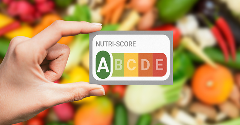
Danone removes NutriScore from products
20 Sep 2024
Following an algorithm update that gives some of its sweetened drinks a worse score, Danone has removed the front-of-pack label, NutriScore, from all of its products – putting profit before public health, say campaigners.
Read more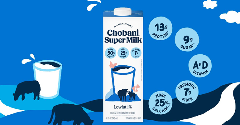
Chobani develops shelf-stable, prebiotic-enriched Super Milk
12 Sep 2024
Chobani has launched a prebiotic-enriched, shelf-stable, high-protein dairy milk to support people in disaster zones who need a nutritious drink that does not require refrigeration.
Read more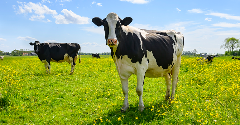
Tesco trials methane mitigation supplement for dairy cattle
5 Sep 2024
Tesco is trialing a methane-reducing feed supplement for one of its key UK dairy farms, sustainable UK milk producer Grosvenor Farms.
Read more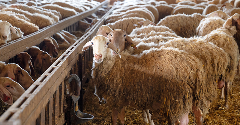
Sheep and goat plague: A new threat to Greece’s feta production
27 Aug 2024
A recent goat and sheep plague outbreak threatens feta production in Greece. The flagship product accounts for roughly 10% of the country’s food exports, but Greek authorities say there is no cause for concern.
Read more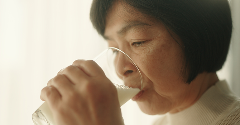
Nestlé develops a new fat reduction method for dairy ingredients
26 Aug 2024
A Brazil-based Nestlé research and development team has developed a way to reduce the fat in milk powder by as much as 60%, without impacting the key characteristics that consumers enjoy.
Read more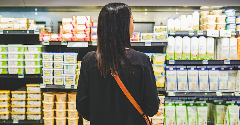
Dutch court rules against plant-based butter brand ‘Roombeter’: Only dairy products allowed to use the word ‘cream’
26 Jul 2024
A Dutch court has ruled against Upfield’s plant-based butter, Roombeter, stating that its use of the word ‘room’ (cream) in the product name violates European regulations that protect dairy-related terms allowed for dairy products only.
Read more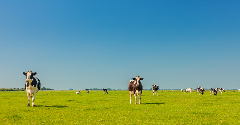
How will Denmark’s 2030 carbon tax impact farming?
12 Jul 2024
Denmark has announced plans to implement Europe’s first carbon tax on agriculture from 2030, targetting the farming sector’s CO2 emissions. How will it be implemented and how have farmers reacted?
Read more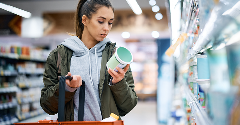
Sweden updates front-of-pack Keyhole labelling rules
11 Jul 2024
The Swedish Food Agency has announced updates to the voluntary Keyhole logo, used in four Nordic countries, following recommendations to improve nutrition labelling.
Read more
Consumers dislike faba beans’ sensory profile
3 Jun 2024
Consumers display low acceptance of faba beans, with sensory properties such as bitterness a core concern, a study suggests. However, for product varieties such as cocoa-free chocolate, this attribute could prove to be a benefit.
Read more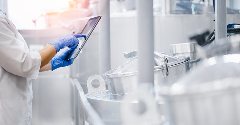
Food scientists uncover new way to preserve nutrient and flavour quality
29 May 2024
Researchers have developed a method that guarantees food safety for low-moisture products, such as dried milk, while maximising quality by retaining vitamins, minerals, and flavours, they say.
Read more